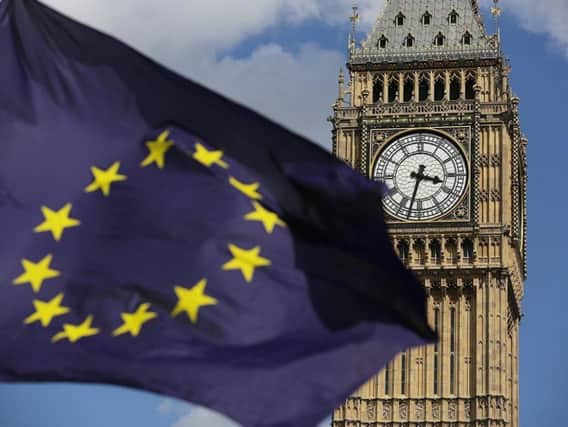Greg Wright: Let's salute the EU nationals who boosted UK economy during times of austerity


During the deep economic freeze which followed the financial crash, building activity halted in parts of Britain. Workers downed tools as credit dried up and schemes were halted. When British building sites finally displayed traces of life, it was greeted as the surest sign that the long awaited economic revival was on its way.
Today, the construction industry faces a terrible dilemma. Lots of people want to build houses and commercial space to ensure we have places to live and work. But the sector is also facing the potential loss of one of its most reliable sources of labour.
Advertisement
Hide AdAdvertisement
Hide AdBritish builders need restrictions on European Union workers like a hole in the head. Not my words but those of Blane Perrotton, the managing director of the national surveyors, Naismiths, who has been horrified by the Government’s announcement that it will be harder for EU workers to enter the UK after Brexit.
Across the UK, one in 10 builders is an EU national. This figure rises to a third in London. Mr Perotton fears that the construction industry, which has wobbled between feast and famine, could be the biggest casualty of any policy that dramatically reduces the numbers of EU nationals working in Britain.
The UK’s construction sector is already suffering from a chronic skills shortage and Brexit is making investors nervous.
Bodies such as the National Federation of Builders are concerned that many jobs in the construction sector will be classed as low-skilled under the new post-Brexit immigration system which has been outlined by the Prime Minister.
Advertisement
Hide AdAdvertisement
Hide AdRichard Beresford, chief executive of the NFB, said: “The new skills-based system will create an additional barrier to building.
“The NFB would like the Government to consider an exemption for those in the construction industry, or an extended transition period.”
Carolyn Fairbairn, the CBI’s director general, has also described the PM’s planned immigration system as a “wrong turn”.
She added: “All skill levels matter to the UK economy. Today’s proposals risk worsening labour shortages, already serious in construction, hospitality and care. Restricting access to the workers the UK needs is self-defeating.
Advertisement
Hide AdAdvertisement
Hide Ad“Just weeks ago the Migration Advisory Committee confirmed that EU workers – at all skill levels – pay in more than they take out. They have not reduced jobs, wages or training for UK workers.”
The CBI is also disappointed that a major flaw in the UK’s current system - the net migration target - will remain because it means that workers with skills the country needs are being turned away and jobs are being left unfilled.
If the flow of labour from the EU is reduced to a trickle, building firms may struggle to complete the projects our economy needs to grow.
If fewer homes are built, it will become even harder for young people to reach the first rung of the property ladder.
Advertisement
Hide AdAdvertisement
Hide AdThe skills shortages in construction pre-date the debate about Brexit. We are reaping the bitter harvest of failing to invest in a workforce that knows how to build offices, factories, schools and houses.
If nothing else, Brexit will force us to invest in training vast numbers of construction workers. But training takes time, which is in short supply as the Brexit clock ticks towards midnight.
We should pause and salute the vital work that has been carried out by EU nationals to power the UK’s economy during the era of austerity, which is apparently drawing to an end. Without their efforts, economic growth would have been more elusive.
The Prime Minister will be responsible for an act of gross economic folly if she presses ahead with the post-Brexit immigration plans in their current form.
Advertisement
Hide AdAdvertisement
Hide AdIt would be far wiser to safeguard the special status enjoyed by EU nationals who want to work in Britain, because our essential services need them.
We would be taking the high moral ground and acting in our national self interests.